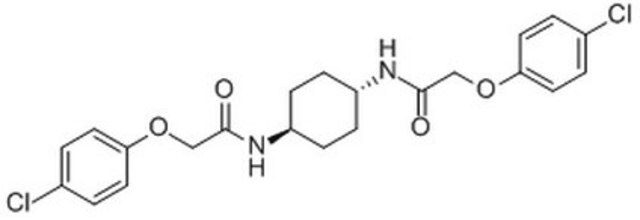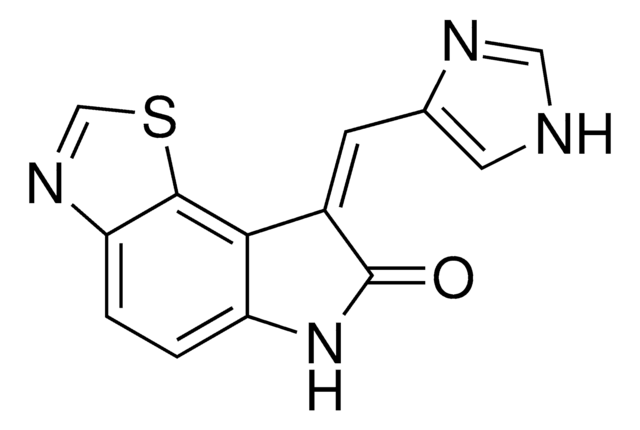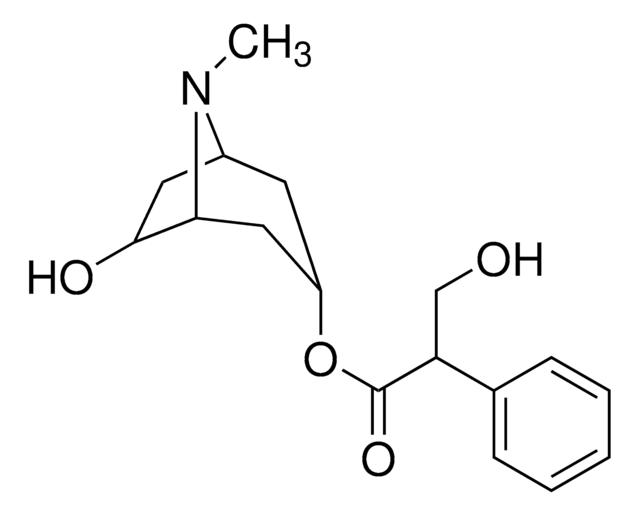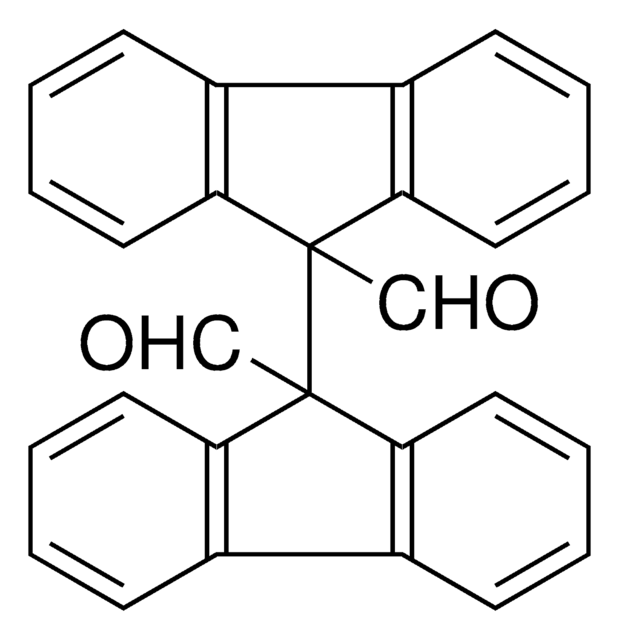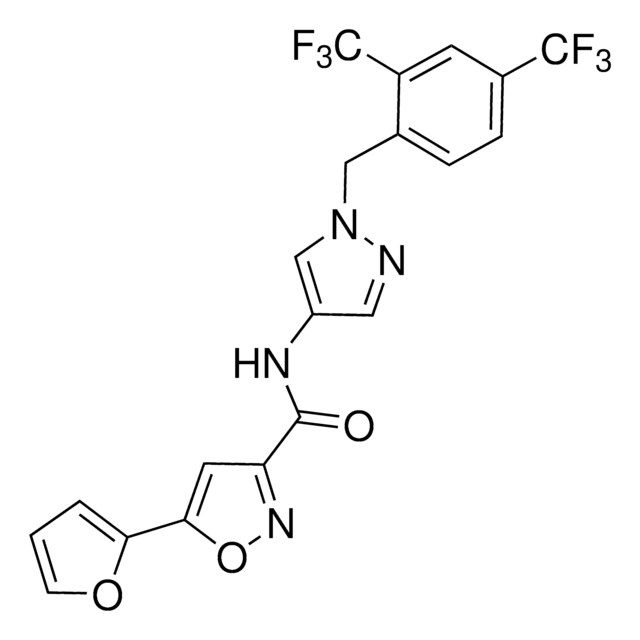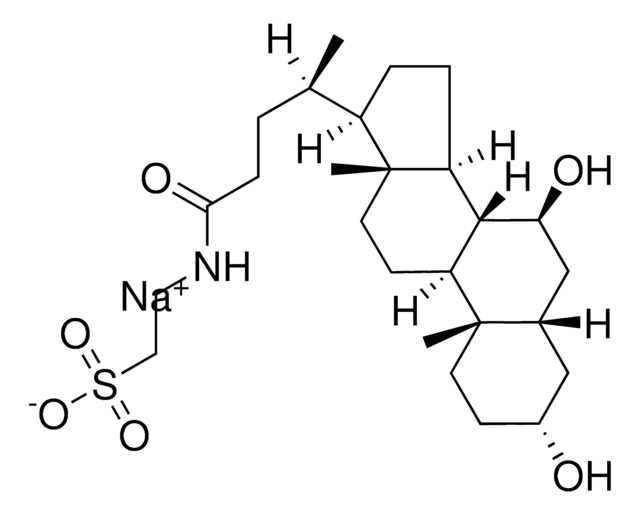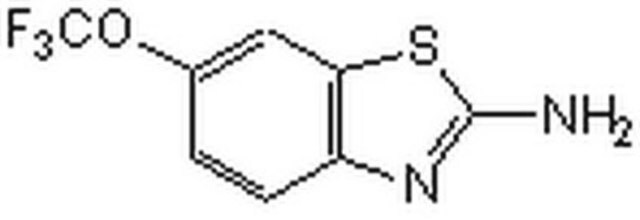SML0843
ISRIB
≥98% (HPLC), powder, integrated stress response inhibitor
Synonyme(s) :
Integrated Stress Response inhibitor, trans-N,N′-(Cyclohexane-1,4-diyl)bis(2-(4-chlorophenoxy)acetamide, trans-N,N′-1,4-Cyclohexanediylbis[2-(4-chlorophenoxy)-acetamide
About This Item
Produits recommandés
product name
ISRIB, ≥98% (HPLC)
Niveau de qualité
Pureté
≥98% (HPLC)
Forme
powder
Couleur
white to beige
Solubilité
DMSO: 1 mg/mL, clear (warmed)
Température de stockage
2-8°C
Chaîne SMILES
ClC1=CC=C(OCC(N[C@@H]2CC[C@@H](NC(COC3=CC=C(Cl)C=C3)=O)CC2)=O)C=C1
InChI
1S/C22H24Cl2N2O4/c23-15-1-9-19(10-2-15)29-13-21(27)25-17-5-7-18(8-6-17)26-22(28)14-30-20-11-3-16(24)4-12-20/h1-4,9-12,17-18H,5-8,13-14H2,(H,25,27)(H,26,28)/t17-,18-
Clé InChI
HJGMCDHQPXTGAV-IYARVYRRSA-N
Application
Actions biochimiques/physiologiques
Code de la classe de stockage
11 - Combustible Solids
Classe de danger pour l'eau (WGK)
WGK 3
Point d'éclair (°F)
Not applicable
Point d'éclair (°C)
Not applicable
Certificats d'analyse (COA)
Recherchez un Certificats d'analyse (COA) en saisissant le numéro de lot du produit. Les numéros de lot figurent sur l'étiquette du produit après les mots "Lot" ou "Batch".
Déjà en possession de ce produit ?
Retrouvez la documentation relative aux produits que vous avez récemment achetés dans la Bibliothèque de documents.
Les clients ont également consulté
Notre équipe de scientifiques dispose d'une expérience dans tous les secteurs de la recherche, notamment en sciences de la vie, science des matériaux, synthèse chimique, chromatographie, analyse et dans de nombreux autres domaines..
Contacter notre Service technique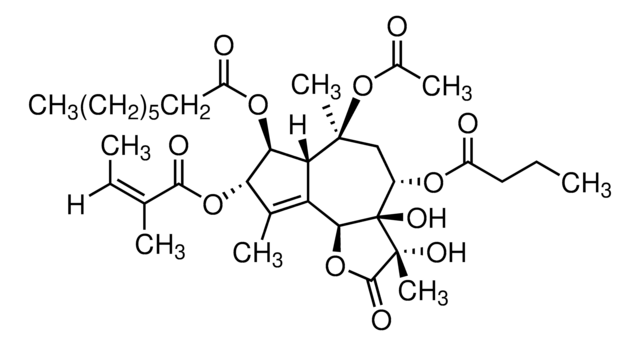
![PERK Inhibitor I, GSK2606414 GSK2606414 is a cell-permeable, highly potent inhibitor of EIF2AK3/PERK (IC₅₀ = 0.4 nM; [ATP] = 5 µM). Targets PERK in its inactive DFG conformation at the ATP-binding region.](/deepweb/assets/sigmaaldrich/product/structures/180/559/efa716dc-d5fe-4339-a6f0-0103084fc04a/640/efa716dc-d5fe-4339-a6f0-0103084fc04a.png)
